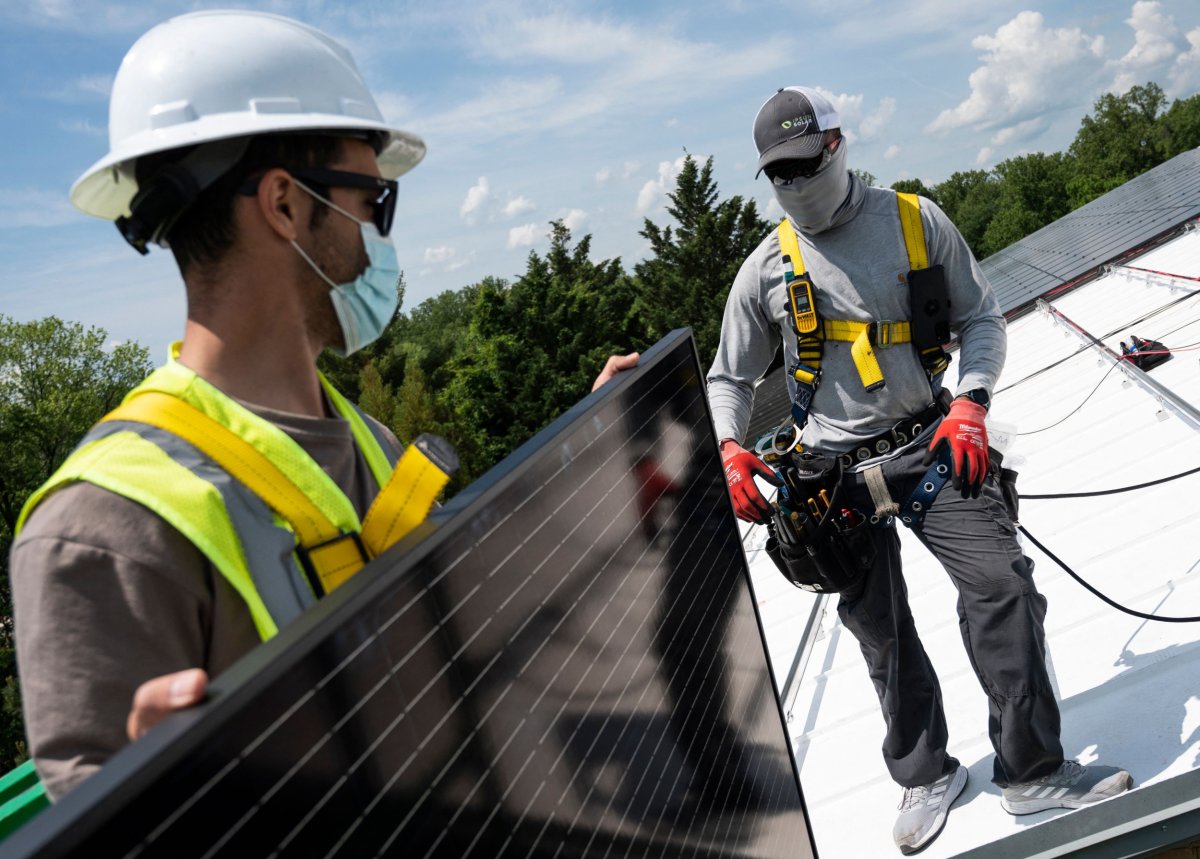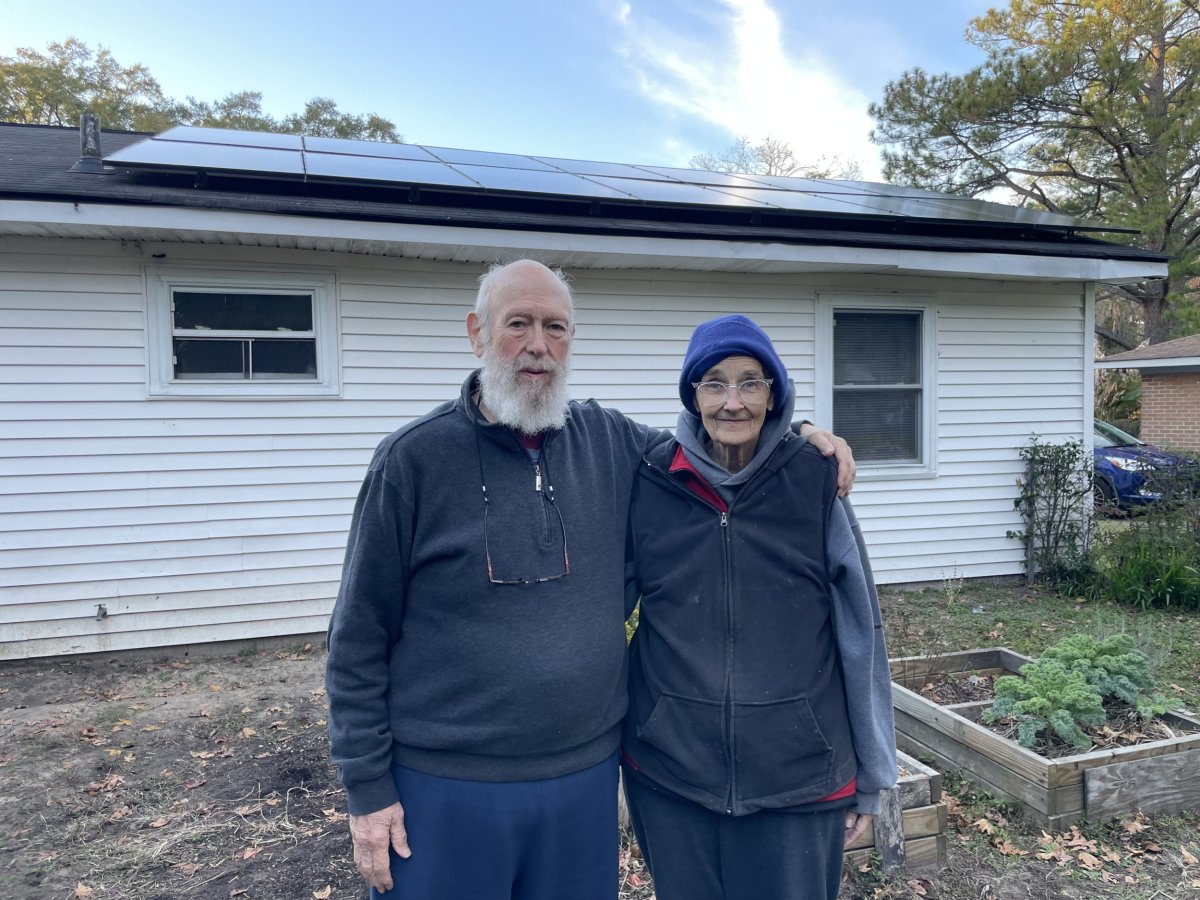The Biden administration chose Earth Day to announce the recipients of $7 billion in funding for a program called Solar for All that aims to expand rooftop and community solar power to an estimated 900,000 households in low- and moderate-income communities.
"The Solar for All program is really emblematic of the swing-for-the-fences, big bold climate action the president has championed from day one," White House Climate Advisor Ali Zaidi said in a press briefing.
Read more: The Pros and Cons Of Solar Energy
Zaidi said the 60 winning applicants will serve all 50 states, Puerto Rico and other territories and increase solar access for tribal governments. The program uses a mix of grants and low-cost financing to overcome financial barriers to solar and provides assistance on siting and permitting solar arrays.

The Capital Good Fund will use the $156 million award from Solar for All for its Georgia BRIGHT solar leasing program, which the group estimated will serve about 21,000 low-income households over five years.
"That is an absolute game-changer for the state of Georgia," Capital Good founder and CEO Andy Posner told Newsweek. "It would be unfathomable to have this kind of scale for solar."
Posner said that prior to the 2022 passage of the Inflation Reduction Act, the Biden administration's signature climate action, nonprofits and many low-income families were not able to use the federal tax credits meant to encourage solar installations.
"If you're low income and you have little to no federal tax liability then that tax credit doesn't do you any good," he said.
The Inflation Reduction Act allowed nonprofits to claim a direct refund for solar instead of a tax credit. Capital for Good uses that refund to pay for the installation of solar panels, which the homeowner then pays for through a reduced-rate lease program. That lowers the barrier of upfront costs and allows people of modest financial means to enjoy the long-term energy savings from solar.
Read more: Federal Solar Tax Credit Guide
Posner said his group will also use Solar for All funding to train local workers to become solar installation experts. There are also provisions for homeowners to address other problems such as outdated electric breaker boxes and aging rooftops that could otherwise prevent them from being able to add solar panels.
"It is really smartly written to meet the needs of the communities that can most benefit from clean energy," Posner said.

Solar for All is the third and final leg of the Greenhouse Gas Reduction Fund, or GGRF, a $27 billion suite of programs meant to steer more clean energy and energy-efficiency investment to lower- and medium-income communities. Recipients of a $14 billion National Clean Investment Fund and a $6 billion Clean Communities Investment Accelerator were announced earlier this month.
The GGRF has won praise from environmental and climate activists and advocates for economic justice who say the scale of funding and thoughtful design of the programs hold the promise to profoundly improve how many Americans can participate in the clean-energy economy.
However, the GGRF's $27 billion price tag also raised concerns among some budget watchers and criticism from congressional Republicans who have termed it a "green slush fund" susceptible to waste and abuse.
Republican leaders in the House of Representatives passed a bill that would repeal the GGRF in favor of an energy program that encourages more fossil fuel development. President Biden has said he would veto the bill if it should reach his desk.
The Solar for All program was the largest of several announcements the White House arranged for Earth Day to highlight Biden's environmental programs. Other announcements included an expansion of the American Climate Corps to offer job-training programs for people who want to work in clean-energy occupations, and a groundbreaking event for a new high-speed passenger rail line.
The White House said work is set to begin on the $12 billion Brightline West train connecting Las Vegas and the Los Angeles area. The 218-mile line will mostly be built in the median of Interstate 15 and is expected to be in operation by 2028.
Uncommon Knowledge
Newsweek is committed to challenging conventional wisdom and finding connections in the search for common ground.
Newsweek is committed to challenging conventional wisdom and finding connections in the search for common ground.
About the writer
To read how Newsweek uses AI as a newsroom tool, Click here.








